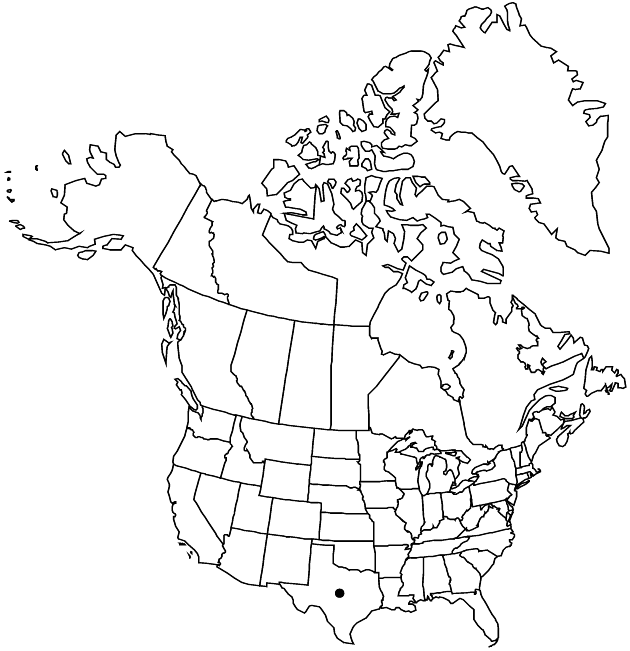Grindelia microcephala
in A. P. de Candolle and A. L. P. P. de Candolle, Prodr. 5: 315. 1836.
Annuals, 15–40 cm. Stems erect, stramineous, ± villous and/or stipitate-glandular. Cauline leaf-blades ± oblong or spatulate, 10–30 (–45+) mm, lengths 2–3.5 times widths, bases clasping, margins ± crenulate (teeth 6–8 per cm, obtuse, resin-tipped), apices obtuse or acute, faces usually hirtellous and glandular (glands usually in pits, seldom sessile or stipitate), sometimes glabrate. Heads in open, corymbiform arrays. Involucres broadly urceolate to hemispheric, 6–9 × 8–13 mm (usually subtended by leaflike bracts). Phyllaries in 5–6 series, spreading to appressed, lanceolate, apices acute to subulate, slightly recurved to straight, little, or not at all, resinous. Ray-florets 16–27; laminae 6–9 (–12) mm. Cypselae brownish, 3.5–4 mm, apices smooth or obscurely coronate, faces smooth or slightly rugose (little, if at all, transversely fissured); pappi of 2–3 straight or weakly contorted, smooth (apices dilated), bristles or setiform awns 3.5–5 mm, equaling or slightly surpassing disc corollas. 2n = 12.
Phenology: Flowering (Nov–)Mar–Jun(–Aug).
Habitat: Bottomlands, rich low ground, thickets, near streams
Elevation: 0–500 m
Discussion
Selected References
None.
